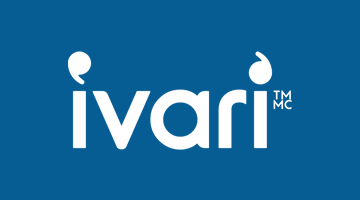Financial Planning for Children or Adults with Special Needs
Financial Planning for Children or Adults with Special Needs
Planning to meet the needs of children or adults who have special needs is often complex. Special financial planning techniques may be needed so you don’t jeopardize any government benefits they may be receiving. Many who have special needs require advice and protection throughout their lifetime from someone with legal authority. This person has the authority to act on their behalf. For most persons with special needs two types of protections are required:
1. protection of the estate left to the individual;
2. protection of his or her person in some form of guardianship.
In practice, provisions for these two types of protection often overlap.
Why should families plan?
Some parents of a child with special needs are not able to see the necessity or benefit of estate planning for that child. Although they are genuinely concerned about the long-term welfare of their child. Their child’s basic needs are presently being met by the state. In their thinking this need will likely always be met by various levels of government funding. They, therefore, see no need to make provision in their will(s) for the needs of their child. Some parents want to plan, but have been told the child cannot have assets if government benefits are payable. Specific planning options should be developed as a means of addressing the problem. In this case, Financial Planning for special needs is critical.
Will and trust provisions
The will should address such issues as guardianship of the child. Further, if funds are to be left at death, a trust can be established. This is done under the will to deal with the assets and provide for income to the child. If the child has a source of income, then he or she may be entitled to assistance. The amount to assistance is dependent on the amount of income. If the child owns marketable assets the authorities, in most circumstances, reject an application for assistance. This is in place until such time as money realized for the assets have been depleted. In order to avoid a refusal of social assistance, the following points ought to be kept in mind:
Social Assistance
- As it is unlikely that the survivor with special needs will ever be able to have the earning capacity that someone without special needs would have, they will be unable to purchase many of the same material items and afford the same travel expenses. Therefore, it is important to make provision in the will which will provide for those expenditures while not impairing the survivor’s entitlement to social assistance. As long as the testamentary gift or trust does not result in the hands of the survivor, he or she does not have an interest in the estate, and does not have an income which will affect his or her ability to receive social assistance.
- It is very important to a family of limited means that what little savings they have at time of death not be depleted. It is important that their life savings be used over time to supplement what social assistance will provide to their survivor.
- Social assistance and other forms of government assistance only provides a minimum standard of living to recipients and occasionally will not pay for all programs which are available or in the best interests of the survivor with special needs. The vehicle available to avoid the depletion referred to above and to provide the material items, travel expenses and other amenities of life to the survivor without impairing their ability to receive social assistance is the discretionary trust.
How should the trust be worded?
During Financial Planning, A discretionary trust usually results from either:
- a specific fund of a specific amount being established in the will, or
- a portion of the residue constituting the trust. As long as the wording of the discretionary trust does not legally enable the survivor to the right to receive benefits from the trustee, the survivor does not have an asset. Drafting of the trust provision is therefore very important. In particular, the trust should be worded in such a way which will preclude the survivor from being in a position to demand or force the trustee to make payment on his or her behalf. The payments are therefore entirely at the “discretion” of the trustee.
Financial Planning: Guardianship
In most cases, it is advisable to appoint a guardian for the adult survivor who has special needs. The guardian is an advocate of the survivor. They make decisions regarding the well-being of the survivor. This is key where the survivor is not capable of making such decisions. Again, the will can be used to make provision for the guardianship.
Financial Planning: Life insurance
Some parents who do not have a large estate will wish to build up a fund for the child by naming him or her as a beneficiary of a life insurance policy. While insurance is a very useful method of increasing the family’s assets, it is generally not a good idea to make the child a beneficiary of the policy. If there are any serious questions as to the child’s ability to handle money, the insurance proceeds should be made payable to the parent’s estate in which event the money will be dealt with under the will of the deceased person. Alternatively, it could be paid directly into a trust established outside of the will in which case the trustee will dispose of the insurance proceeds in the manner described in the trust agreement.
The above should not be taken as providing legal, accounting or tax advice. You should obtain your own independent professional advice from your lawyer and/or accountant to take into account your particular circumstances.













